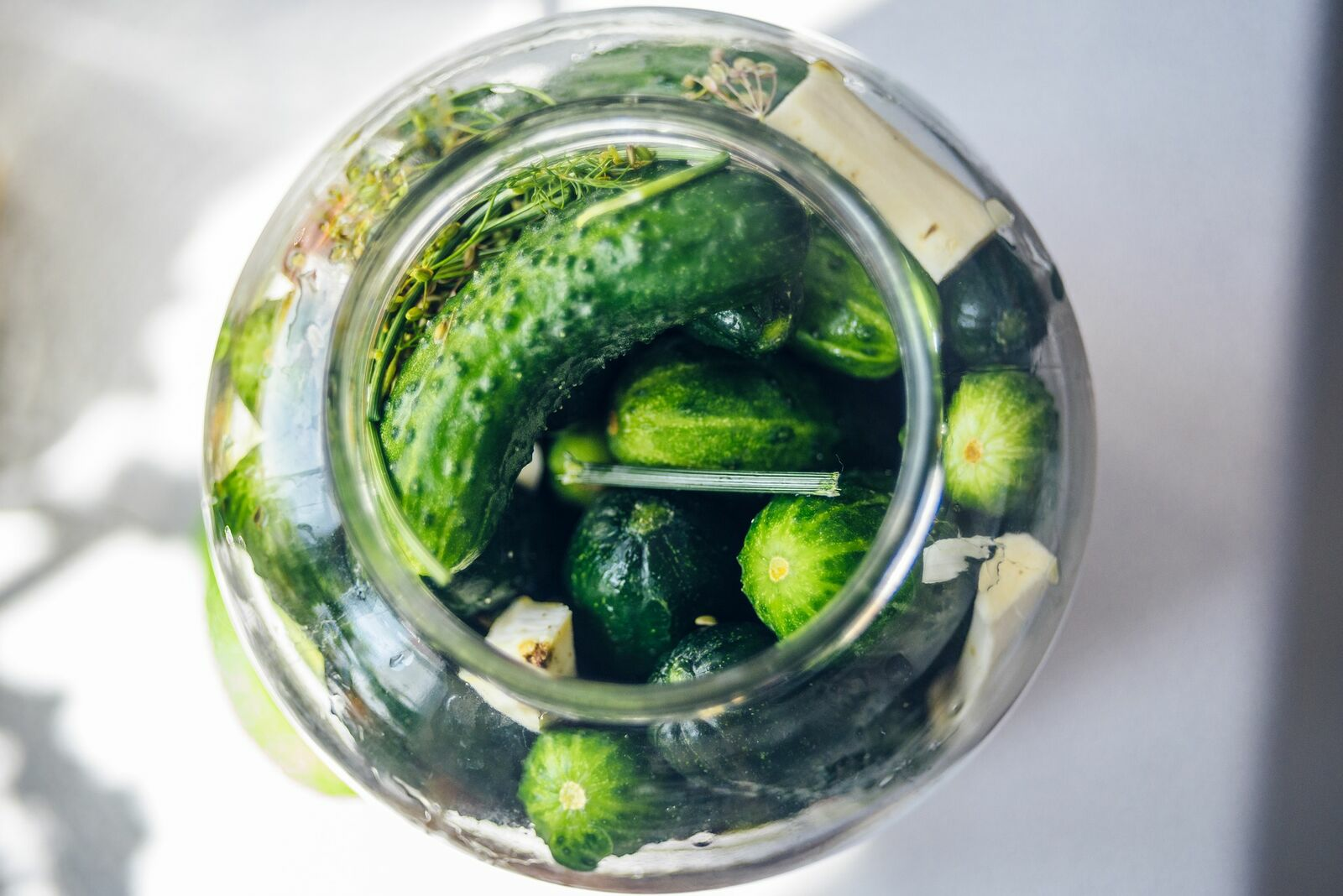
How to Pickle Cucumbers: Make Your Own Pickles
Cucumbers are a popular summer treat, and you can even preserve your cucumbers all year round by pickling them. In this article, we explain what you should bear in mind when pickling cucumbers, what types of cucumbers can be pickled and provide you with a few sample recipes.
This Article Contains:
- Pickling Gherkins: Pickling Mustard Gherkins, Sweet and Sour Gherkins and Pickled Gherkins
- Cucumber Varieties for Pickling
- Preserving Cucumbers: Cucumber Recipes
- Pickling Cucumbers Without Cooking
- How Long to Pickle Cucumbers?
- Preserving Cucumbers: Stone Pot or Screw-Top Jar
- Storing Pickled Cucumbers
- Frequently Asked Questions About Pickling Cucumbers
Quick Overview
Pickling Gherkins: An Overview
- Cucumber varieties: Depending on the variety (gherkins, snake cucumbers, salad cucumbers), the consistency and taste of the end results will vary.
- Ingredients: In addition to cucumbers, the main ingredients are vinegar, salt and optional sweeteners. Spices such as mustard seeds, peppercorns and dill refine the taste.
- Cooking method: Cucumbers can be cooked in a broth of vinegar and spices or pickled raw in brine.
Pickling Cucumbers: Recipe
Here you will find a short, general recipe for pickling cucumbers. Depending on your taste, you can pickle your cucumbers with spices such as dill, mustard, chillies, garlic and honey:
- Ingredients: 1 kg/2.2 pds cucumbers, 600 ml/21 fl. oz. apple cider vinegar, a little stevia/sugar and salt, spices.
- Preparation: Boil the cucumbers in hot stock and fill into sterilized jars.
Pickling Gherkins: Pickling Mustard Gherkins, Sweet and Sour Gherkins and Pickled Gherkins
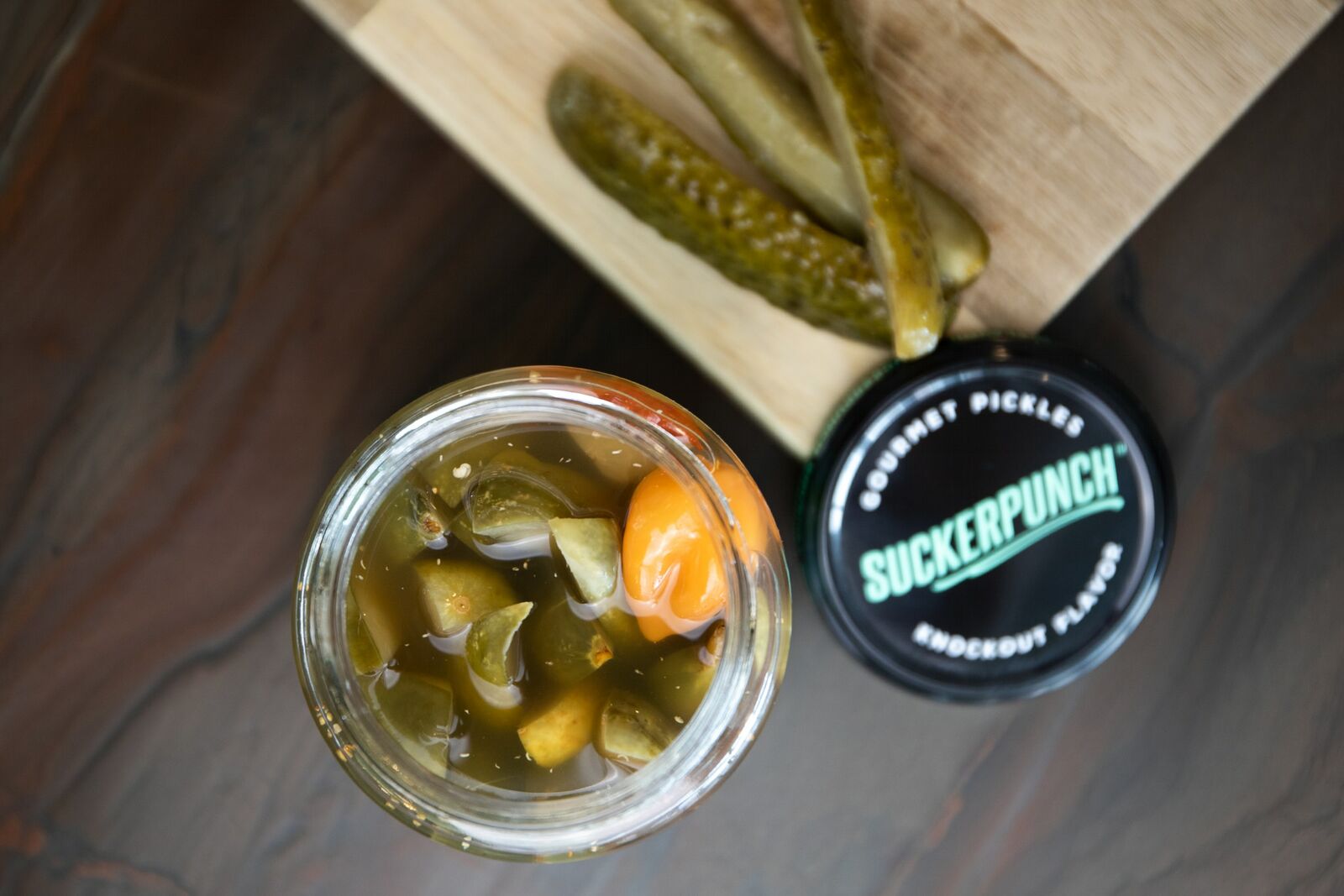
Everyone has different tastes when it comes to pickled cucumbers. Fortunately, there are recipes for almost every preference. In the respective sections you will find recipes for mustard pickles, sweet and sour pickles and pickled cucumbers. You can find tips and tricks on how to grow cucumbers in our article Planting Cucumbers.
Cucumber Varieties for Pickling
Each cucumber variety offers unique characteristics and flavor profiles. Whether it's a farmer's cucumber, gherkin or snake cucumber, choosing the right variety depends on your personal preferences and the desired end product. You can find out more about the different types of cucumber in our article Cucumber Varieties: About Salad Cucumbers and Pickling Cucumbers.
Pickling Gherkins
Gherkins are small, firm cucumbers that are ideal for pickling. They are the classic pickling gherkins and have several advantages when it comes to pickling:
- Firm consistency: Gherkins retain their crunchiness even after pickling, which ensures a pleasant mouthfeel.
- Thin skin: Their skin does not need to be removed, which simplifies the pickling process.
- Taste: Gherkins absorb the taste of the pickling solution well, making them very aromatic.
- Size: Gherkins should be as evenly sized as possible for a uniform result. If they are too large, they can be cut into slices.
- Freshness: For the best result, the cucumbers should be as fresh as possible and free from damage or soft spots.
Pickling Gherkins & Cucumbers
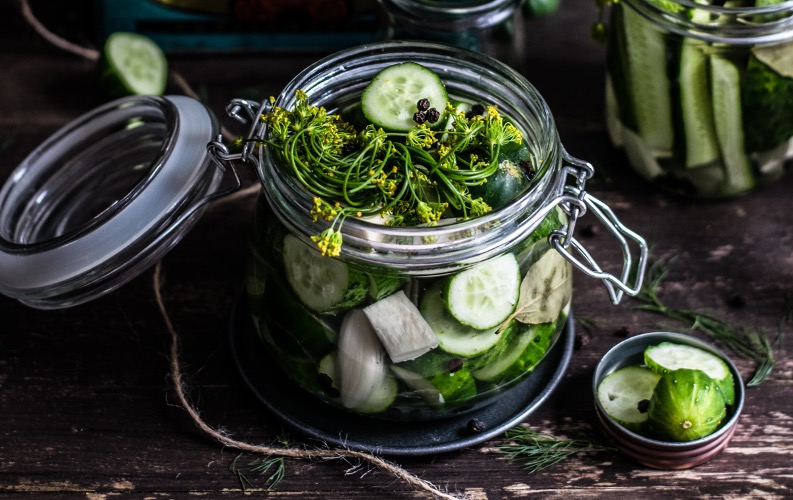
Snake cucumbers and salad cucumbers are usually eaten fresh, but can also be pickled. Pickling allows you to preserve your gherkins and cucumbers, especially if you get a large quantity of cucumbers from your garden and you can't use them all fresh or give them away. Here are some advantages and disadvantages and things to bear in mind:
- Mild flavor: These cucumbers often have a milder flavor than pickles, making them a good choice for people who prefer a less intense pickle.
- Thinner skin: While the thin skin can be an advantage as it doesn't need to be removed, it can cause the cucumbers to lose some of their crunchiness when pickling.
- Consistency: As these types of cucumbers are less firm, they can become softer when pickled. It is advisable not to leave them in the pickling solution for too long.
- Seeds: These types of cucumbers may contain more seeds, which some people find annoying. If necessary, the seeds can be removed.
- Preparation: With snake cucumbers in particular, it is often better to cut them into slices or strips to ensure better penetration of the pickling solution.

Find Inspiration in Our Community!
To exchange ideas with other gardeners and benefit from their experiences, you can visit our Fryd community. Perhaps someone has a recipe idea for you and can give you some tips.
Join Community NowPreserving Cucumbers: Cucumber Recipes
Cucumber pickling is a traditional method of preserving the taste and freshness of summer throughout the year. The cucumbers are not only pickled in vinegar or brine, but also pasteurized using heat, which significantly increases their shelf life. This process, also known as "hot-filling", seals the gherkins in airtight jars and protects them from bacteria and mold. There is a wide variety of recipes: from sweet and sour pickled gherkins to spicy varieties with garlic, mustard and dill. And it's not just cucumbers that you can pickle, you can also pickle other vegetables such as peppers like cucumbers. Regardless of the recipe you choose, it is important to use fresh ingredients and clean, sterilized jars. You can adjust the intensity and mix of spices to suit your personal taste, which allows for countless variations and exciting flavor experiences.
Pro tip: Sprinkle your cucumbers or cucumber slices with a little salt and weigh them down overnight or for 12 hours. The salt removes excess moisture from the vegetables, which helps to keep the cucumbers crunchy. It also intensifies the flavor and improves the shelf life, as the excess water does not dilute the vinegar.
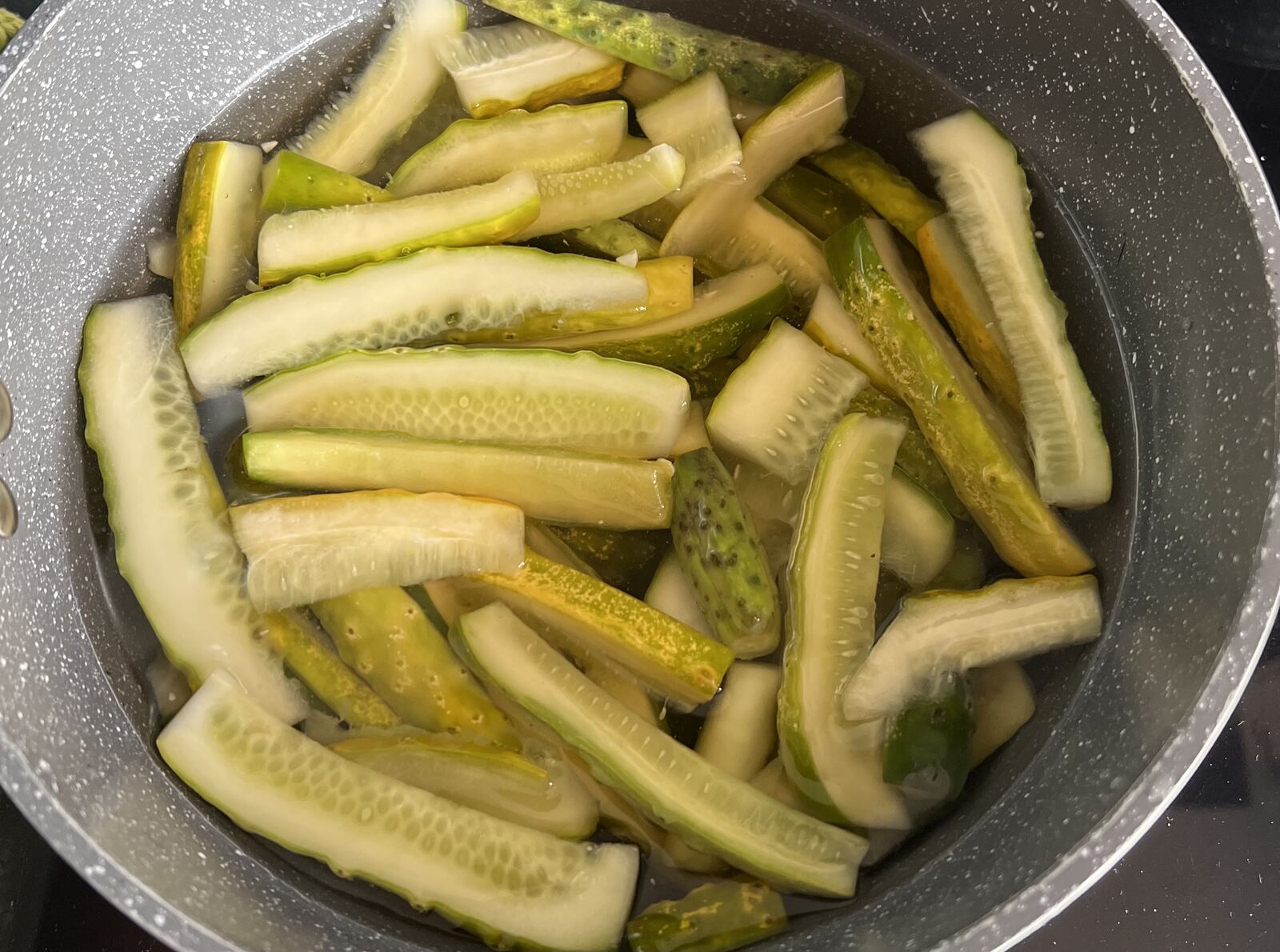
Pickling Cucumbers According to Grandma’s Recipe
There are many grandma-style recipes. Perhaps there are also recipes in your family that used to be used for pickling. Have a look or ask your relatives if you like. But in the next section, we also present a recipe for sweet and sour cucumbers Grandma's style.
Pickling Sweet and Sour Cucumbers Like Grandma
Ingredients:
- 1 kg/2.2 pds fresh gherkins, 500 ml/17.5 fl. oz. apple cider vinegar, 300 ml/10.5 fl. oz. water, 4 tbsp raw honey, 2 tsp sea salt, 3 cloves garlic, sliced, 2 tsp mustard seeds, 1 tsp peppercorns, 2 fresh dill sprigs per jar, 1 bay leaf per jar, 1 red chili, sliced into rings (optional, for a little spiciness)
Preparation:
- Wash the cucumbers thoroughly. Depending on the size, cut in half or leave whole.
- Bring the vinegar, water, honey and salt to the boil in a large pan. Stir until the honey and salt have dissolved. Add the mustard seeds, peppercorns, garlic, bay leaves and chili (if using) to the mixture.
- Place 2 sprigs of dill in each sterilized preserving jar and place the cucumbers close together. Pour the hot liquid over the cucumbers so that they are completely covered. Close the jars tightly.
- Simmer the jars in a large pan of water (the jars should be 2/3 full of water) for 10 minutes to seal them. Remove from the water bath and leave to cool. Store in a cool, dark place for at least 4 weeks to fully develop the flavor.
Pickled Gherkins Recipe
Making your own pickled gherkins is not difficult at all. There are many recipes on the internet, depending on what flavor you prefer. You can find a sample recipe here. Feel free to adapt it to your own taste.
Ingredients:
- 1 kg/2.2 pds cucumbers
- 50 g/1.76 fl. oz. salt
- 1 liter/2.1 pts water
- Fresh dill
- Garlic cloves
Preparation:
- Wash the cucumbers. Bring the water and salt to the boil in a pan.
- Place the cucumbers, dill and garlic in a sterilized preserving jar. Pour over the brine so that the cucumbers are covered. Seal the jar and store in a cool place.
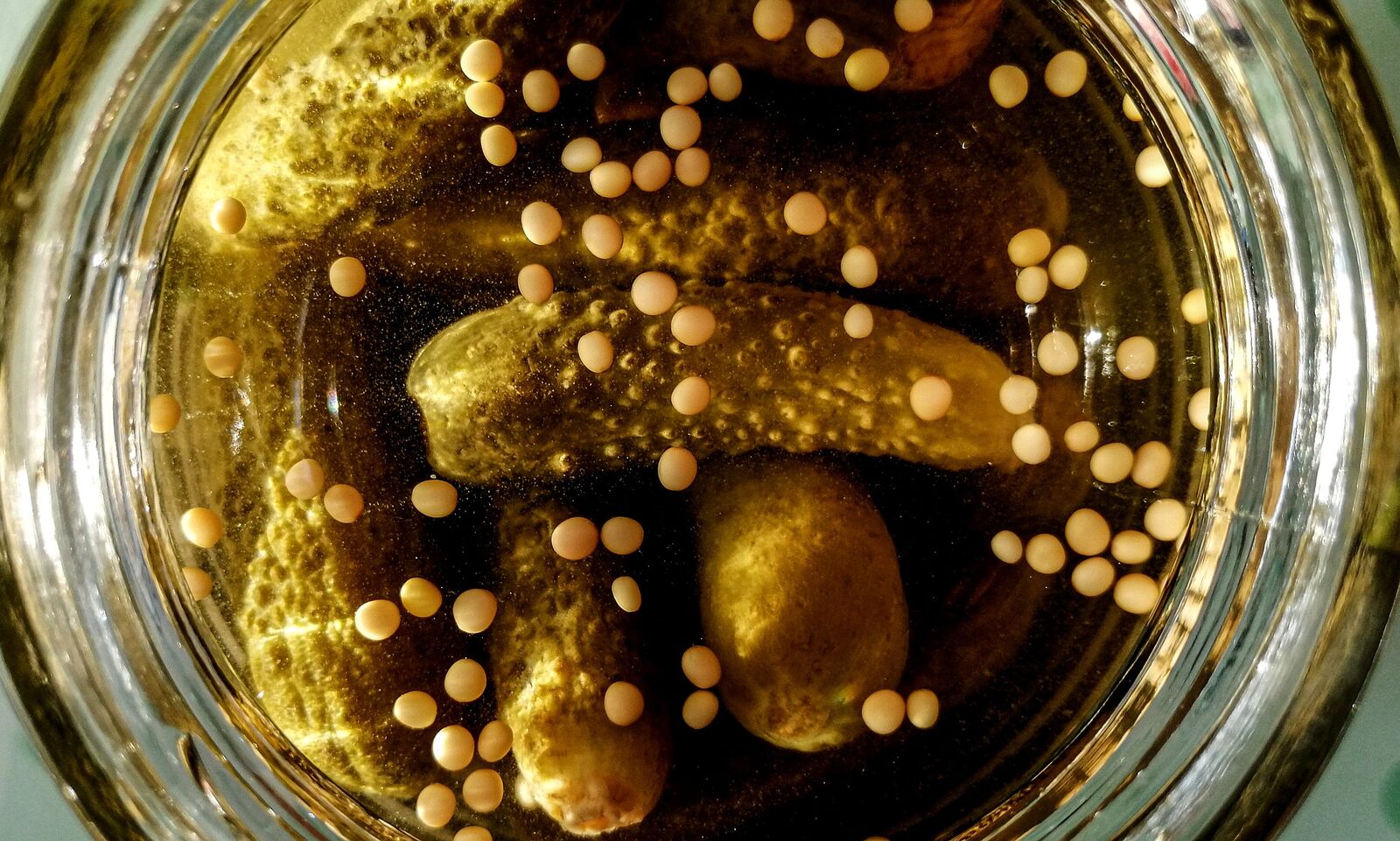
Make Your Own Mustard Gherkins
There are also many recipes for mustard pickles. Depending on how intense you want the flavor of the spices to be at the end of the pickling, you can use different amounts of spices and time before opening the pickled cucumbers. This recipe has already been tried by us and the flavor was very strong and intense.
Ingredients:
- 1 kg/2.2 pds cucumbers, 50 g/1.76 fl. oz, salt, a handful of fresh dill, 2 tsp dill seeds, 2 tbsp mustard seeds, 2 garlic cloves, 600 ml/21 fl. oz. white wine vinegar, 100 g/3.52 fl. oz. sugar and 1 red chili (optional)
Preparation:
- Wash the cucumbers. Leave the cucumbers whole or, in the case of large cucumbers, cut them in half lengthwise (remove the seeds if necessary). Place in a shallow dish, sprinkle lightly with salt and toss to distribute the salt. Cover the surface with baking paper and weigh down with a plate. Leave to stand in a cool place for 12 - 24 hours.
- Transfer to a colander and rinse the cucumbers under cold water. Drain well, tossing to drain off the excess water. Leave to dry for 5 - 10 minutes.
- Place fresh dill and dill and mustard seeds and a clove of garlic in each jar.Place the vinegar, 200 ml/7 fl. oz. water and sugar in a large saucepan and heat gently, stirring constantly, until the sugar has dissolved. Add the gherkins or cucumbers and simmer for 5 - 6 minutes for gherkins or 3 - 4 minutes for cucumber sticks (the skins of both varieties will turn olive green and the cucumber flesh slightly translucent). Remove from the heat.
- Fill the cucumbers or cucumber sticks into the sterilized jars. Put the remaining liquid back on the heat and bring to the boil. Pour into the jars, making sure that the liquid completely covers the contents. Screw the lid on tightly and turn the jar upside down for a minute or so to ensure the lids are sterilized, then turn upside down and leave to cool.
- After 1 - 4 weeks, the cucumbers will have taken on the flavor of the spices and you can use them. The longer you leave the cucumbers, the more intense the flavor.
Recipe originally from BBC Food: Dill pickles.
Pickling Cucumbers Without Cooking
Pickling cucumbers without cooking, often referred to as "fridge pickling", is a quick method of pickling cucumbers. The cucumbers remain particularly crunchy as they are not exposed to the heating process. However, the shelf life of such cucumbers is shorter than that of conventionally pickled cucumbers.
Quick Pickling Cucumbers: How It Works
- Choose fresh cucumbers without bruises or damage. Use in slices, halves or whole pieces.
- Mix the water, vinegar, salt and possibly a little sugar or honey well in a bowl. The exact proportions will vary depending on the recipe and taste. Add spices according to taste.
- Pack the prepared cucumbers tightly into sterilized preserving jars. Pour the pickling solution over the cucumbers so that they are completely covered. Close the jars tightly with a lid.
- Place the jars in the fridge. Leave the cucumbers to infuse for at least 24 - 48 hours.
Pickling without cooking is a great way to enjoy the fresh, crisp taste of cucumbers without the hassle and time required for pickling.
How Long to Pickle Cucumbers?
The length of time for which cucumbers should be pickled depends on the type of recipe and the desired flavor result. Here are some general guidelines:
- Quick pickling cucumbers (refrigerator pickling cucumbers): Between a few hours to 2 days. Shelf life: about 2 weeks in the fridge.
- Traditional pickled gherkins: 4 - 6 weeks.
- Pickled gherkins: 1 - 3 weeks, then put in the fridge for further storage.
- Mustard gherkins and other varieties: 1 - 6 weeks.
Preserving Cucumbers: Stone Pot or Screw-Top Jar
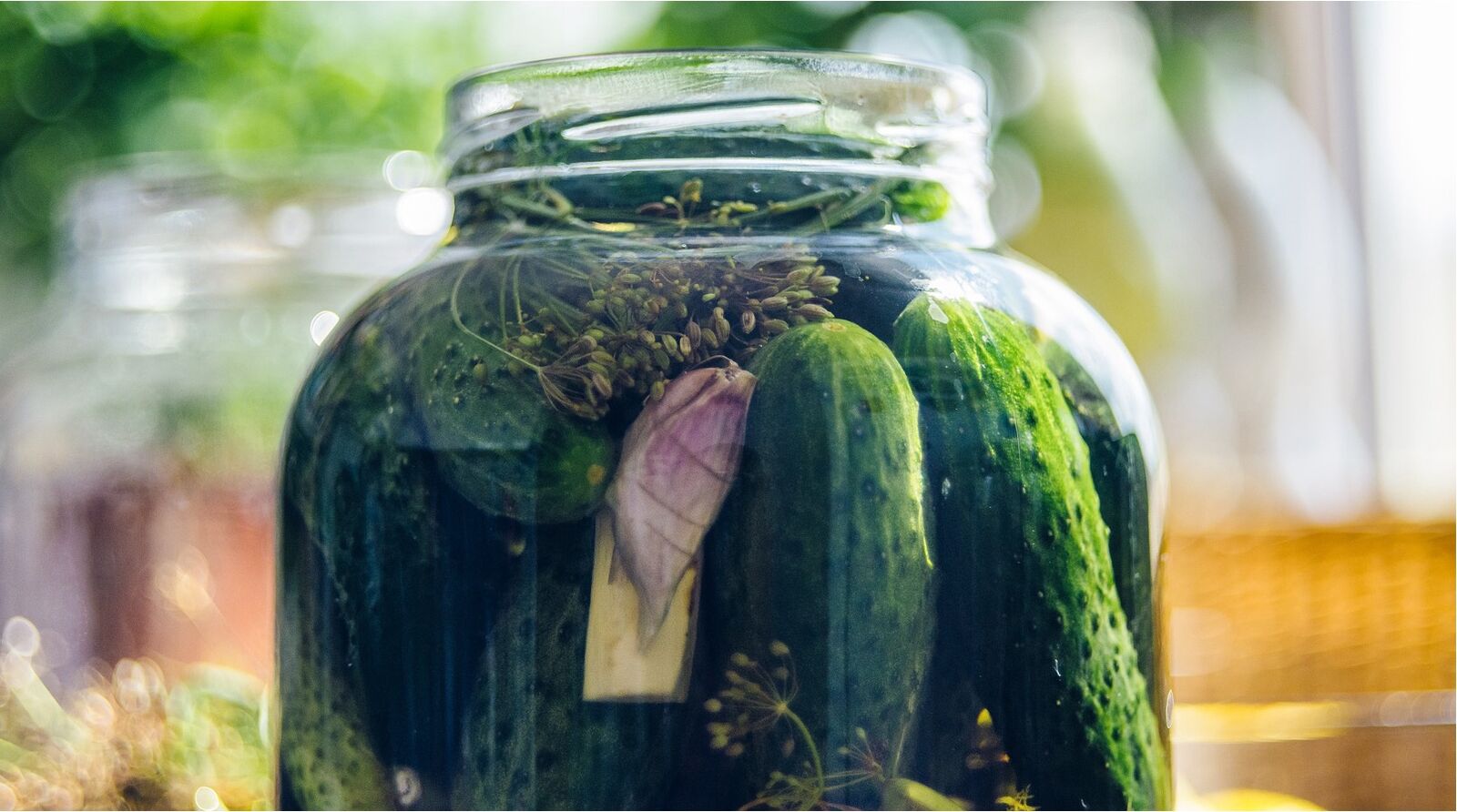
Canning cucumbers is a traditional method of preserving them over a longer period of time, and both the stone pot and the screw-top jar each offer their own advantages and disadvantages. We explain what these are in the respective sections. You can find out more about the right containers for preserving in our article Preserving Jars.
Pickling Cucumbers in a Stone Pot
Pickling in a stone pot is an old method that is often used to ferment cucumbers. The stone pot keeps the cucumbers cool and dark. Due to its heavy and impermeable structure, it provides an ideal environment for fermentation, which can lead to a deeper flavor and a longer shelf life. It is particularly suitable for larger quantities and keeps the contents cool and protected from light, which aids fermentation. One disadvantage could be its size and weight, which makes it less handy and difficult to store. In addition, not everyone has a stone pot at home, while screw-top jars often accumulate as waste from canning.
Preserving Cucumbers in a Screw-Top Jar
The screw-top jar, on the other hand, is perfect for smaller quantities and for those who prefer a more practical, space-saving option. It is easy to seal, which offers easy storage and good protection against contamination. However, screw-top jars offer less insulation against temperature fluctuations. Both methods have their own merits, and the choice ultimately depends on your personal preferences and requirements.
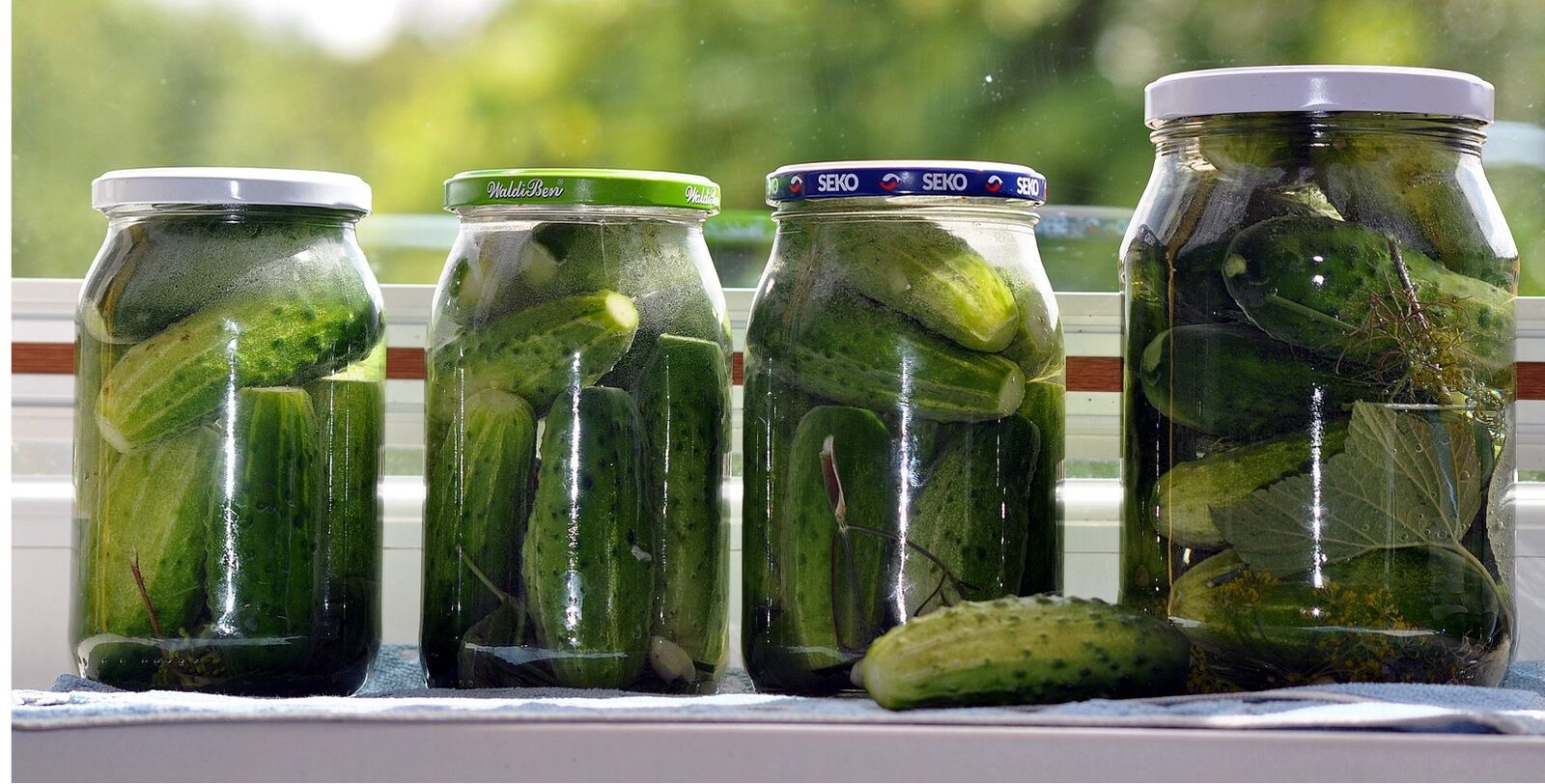
Storing Pickled Cucumbers
After pickling, the cucumbers should be stored in a cool, dark place, preferably in a cellar or a cool cupboard. If you pickle your cucumbers properly and store them correctly, the pickled cucumbers will keep for around 12-18 months or even longer. These factors influence the shelf life of your cucumbers:
- Sterilization: Preserving jars and lids should be thoroughly sterilized before filling to maximize shelf life.
- Airtight seal: A good, airtight seal prevents the entry of bacteria and mold.
- Acidity: The acidity of the vinegar helps to preserve the pickles and prevent bacterial growth.
- Storage conditions: Pickled cucumbers should be stored in a cool, dark and dry place.
It is always a good idea to mark the canning date on the jars and to check the jars regularly for signs of spoilage, such as cloudy liquid, unpleasant odor or mold. If there are signs of spoilage, the cucumbers should not be consumed.
Want to learn even more about canning, check out our Fruit & Vegetable Preserving article.
If you have any questions or comments, please write to us at [email protected]. Would you like to receive helpful gardening tips all year round and plan your own beds optimally? Then register here or download the Fryd app for Android or iOS.
Fryd - your digital bed planner
Cover picture by Kasjan Farbisz on Pixabay.

Marielena
Marielena studies agricultural and environmental sciences. She gardens at home and at an allotment and likes to try out new things.
Learn MoreCurrent Topics in the Community
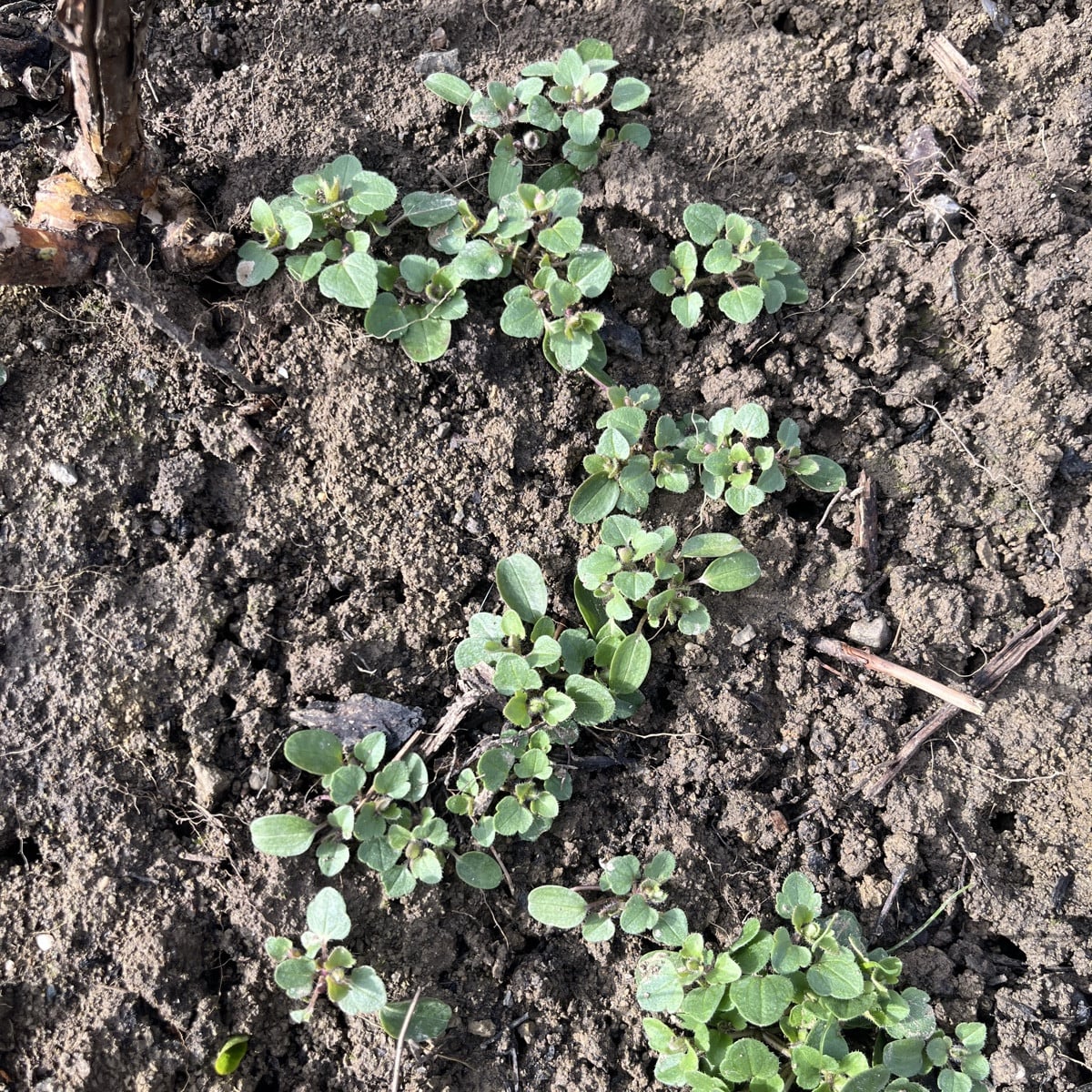
According to Flora Incognita, a lot of ivy speedwell is sprouting from my newly planted raspberry patch. Is this good underplanting or should I remove it because it's a weed? Thank you for your opinion.
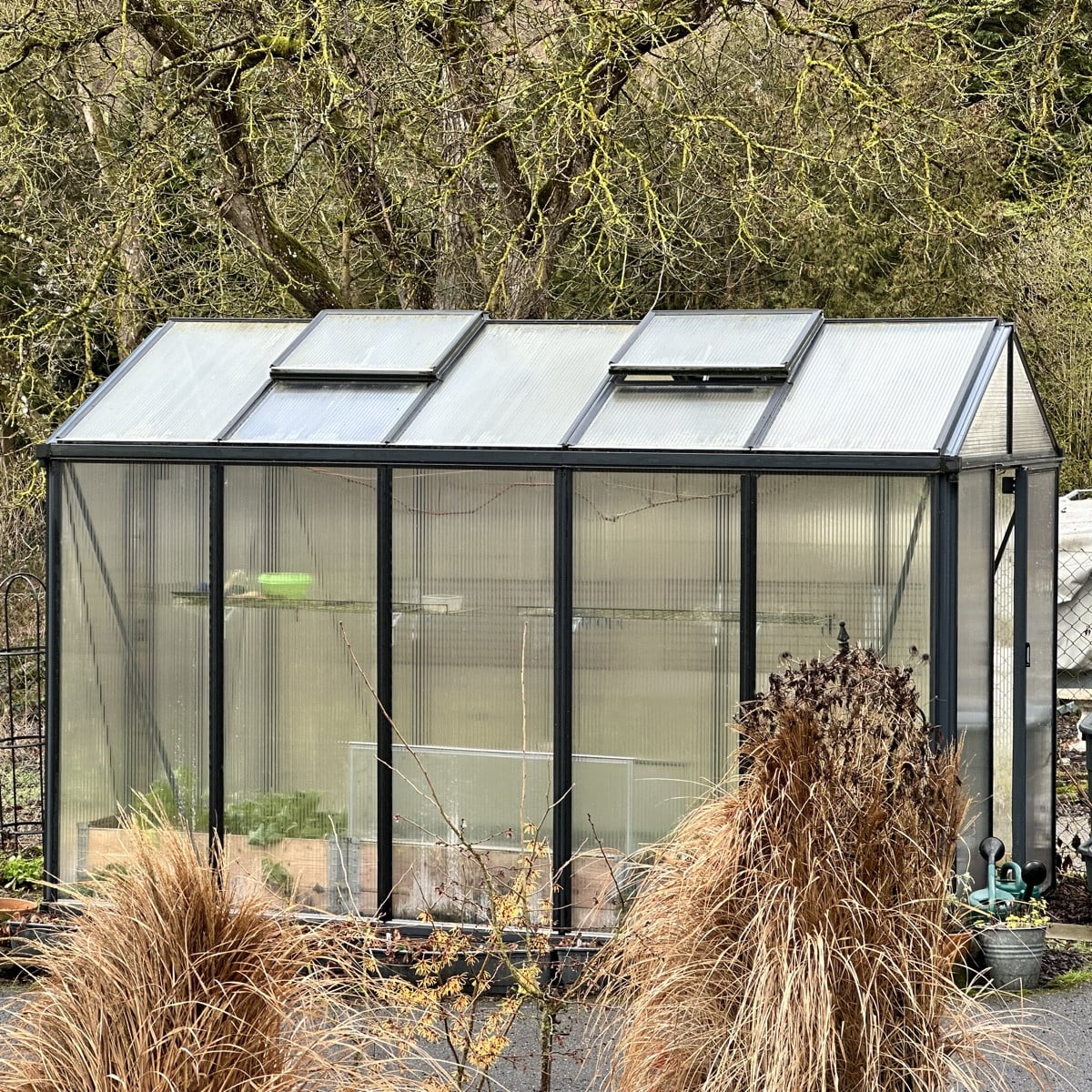
Liked 5 times
Before and after 💚😊

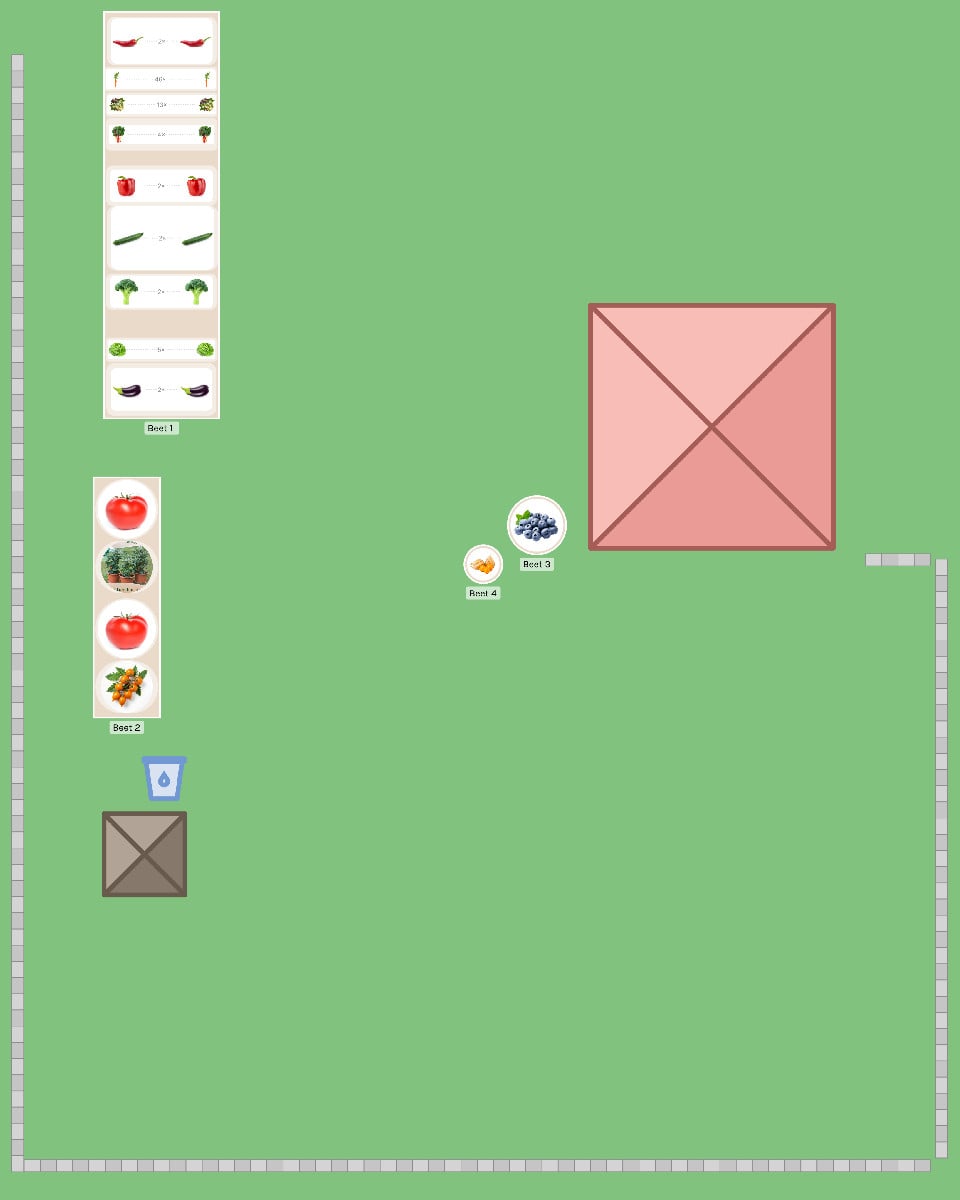
Liked 1 times
Hey everyone, we're moving and I'm finally about to start my first year of gardening. As a child, I always watched my grandmother and hope to follow in her footsteps. I would love to hear your tips and suggestions for improvement! Best wishes, Antonia :)
Popular Articles
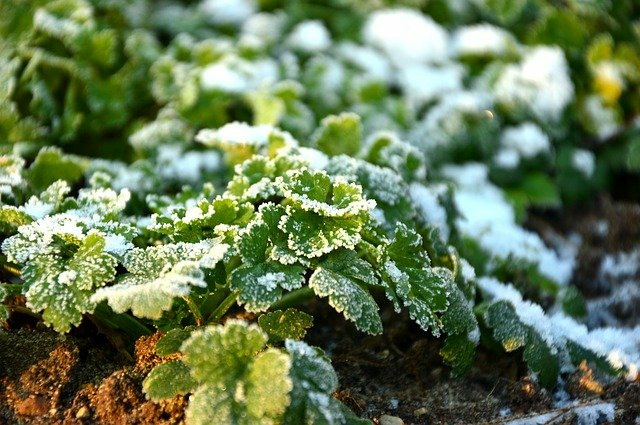
Overwintering Parsley: How to Do It Successfully
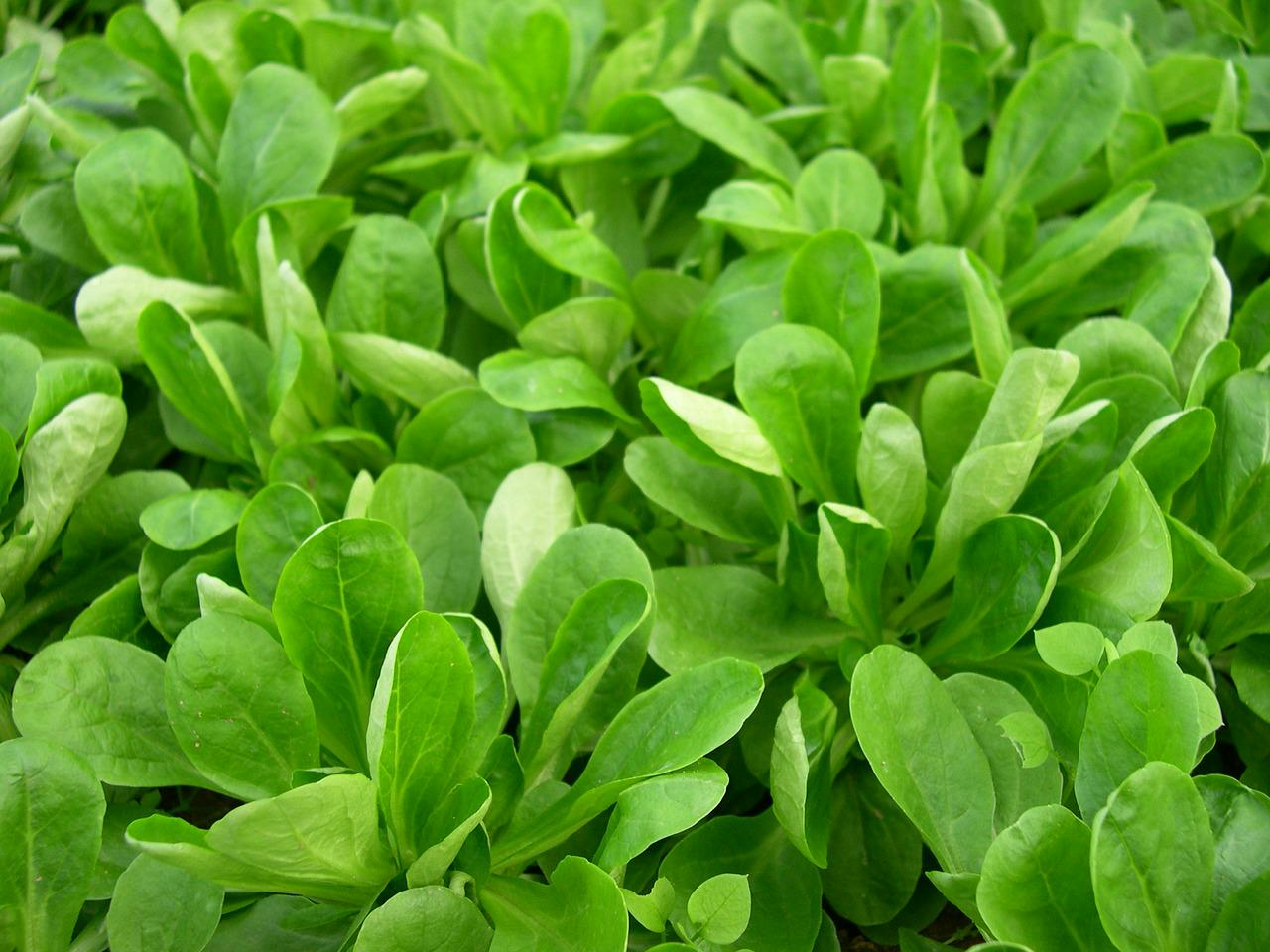
How to Grow Lettuce in Winter: Varieties, Sowing, Harvesting

Growing Sage Plant: Tips for Sowing and Harvesting
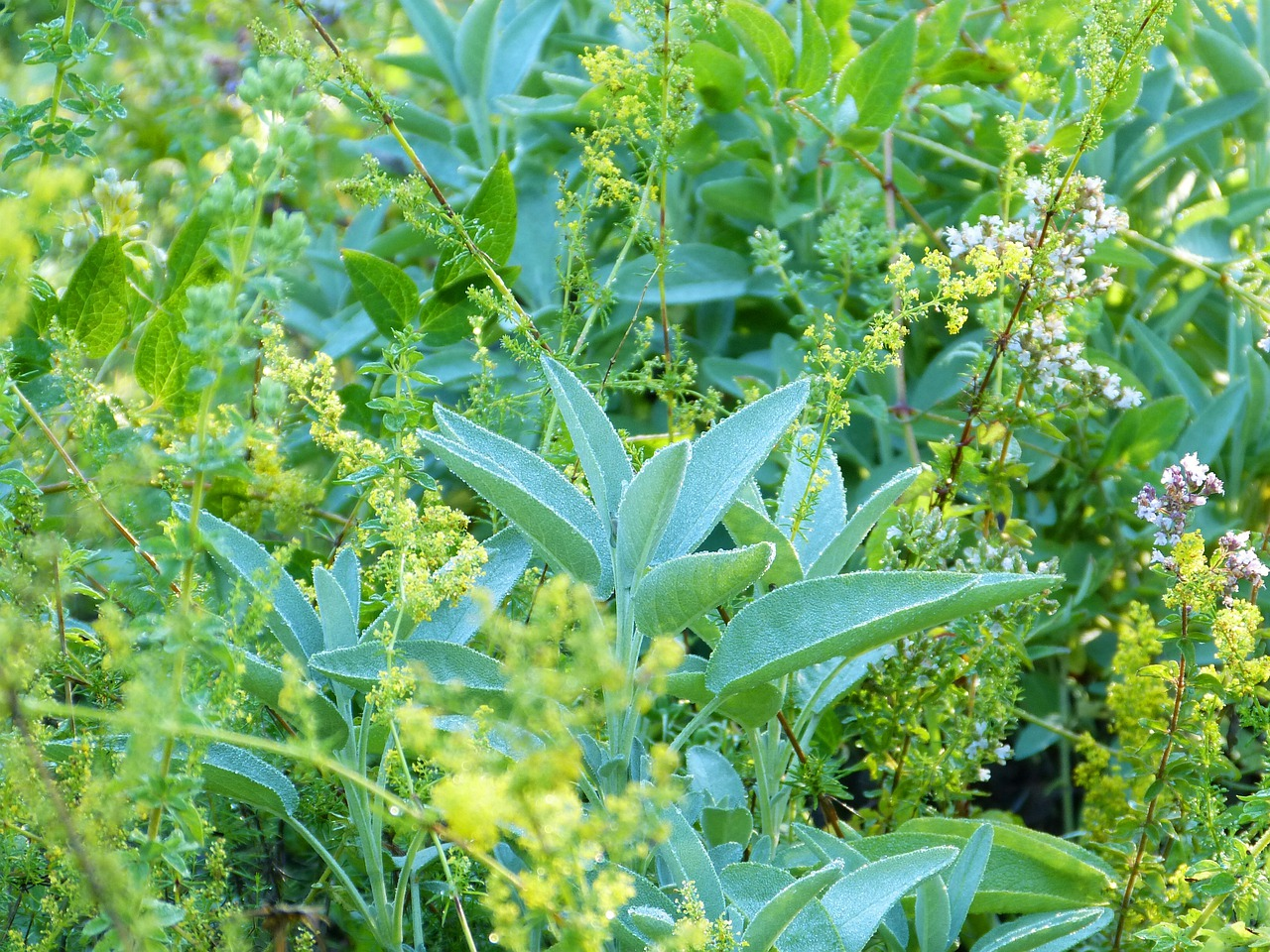
What Herbs Can Be Planted Together?
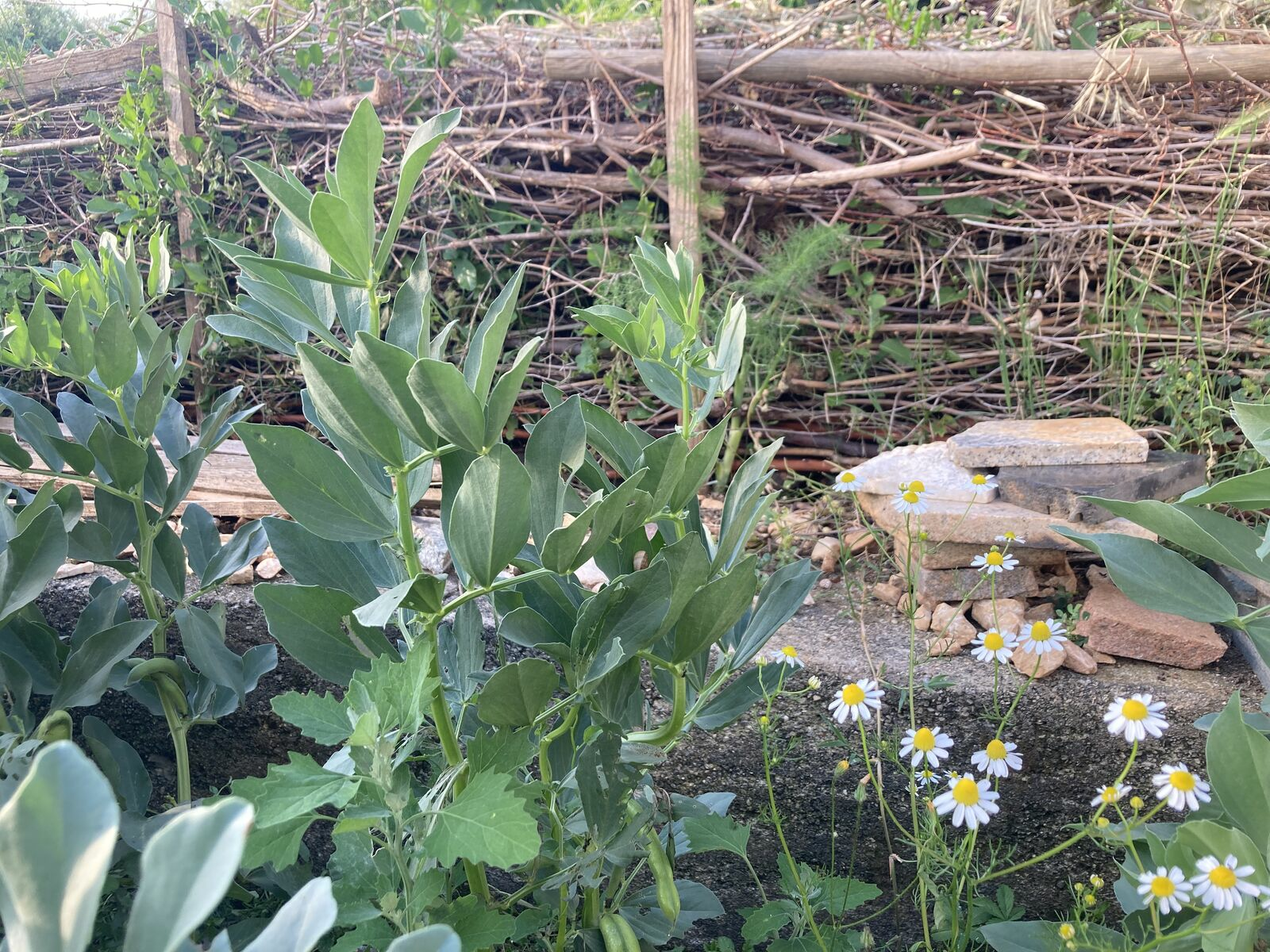
Create & Design a Permaculture Garden
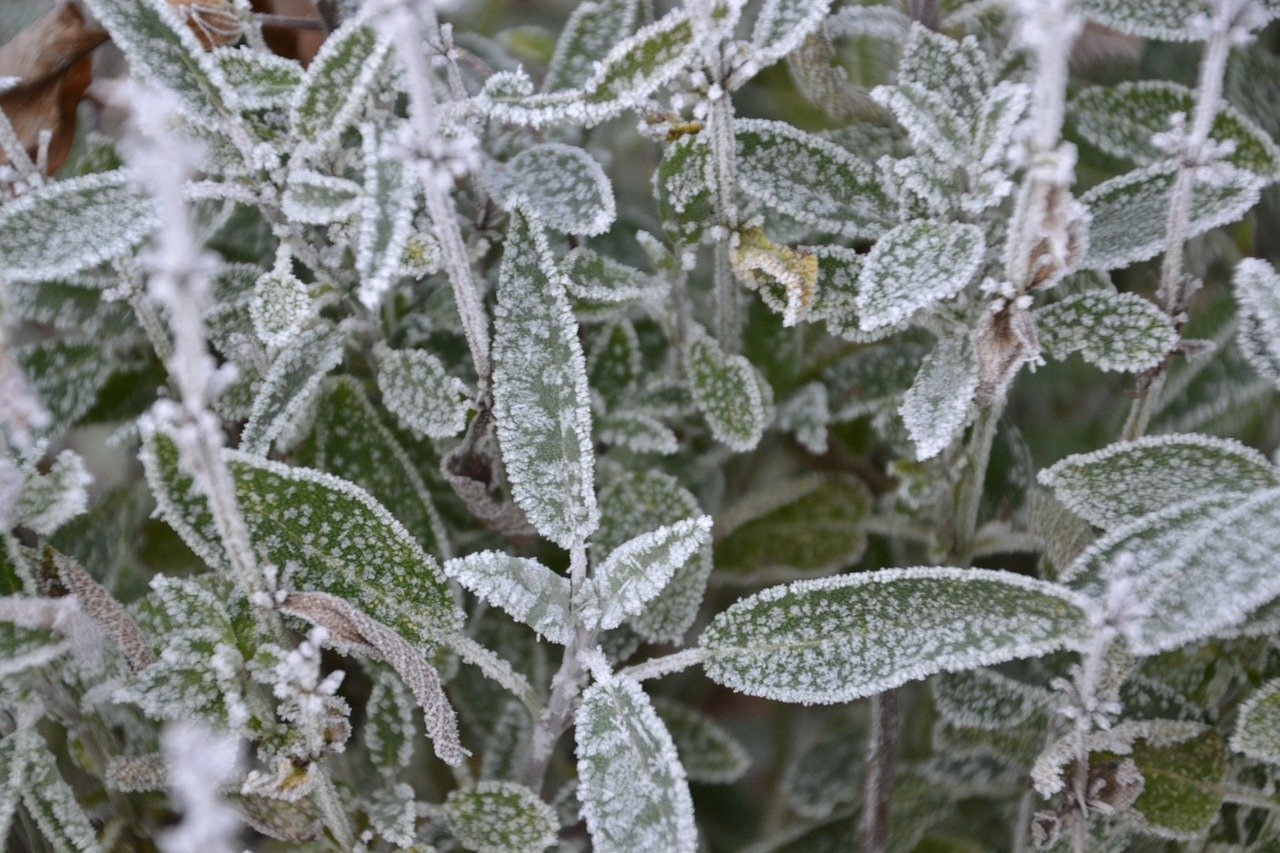
Overwintering Plants: Tubs, Pots and Raised Beds

Pruning, Fertilizing & Propagating Currants: Care Tips
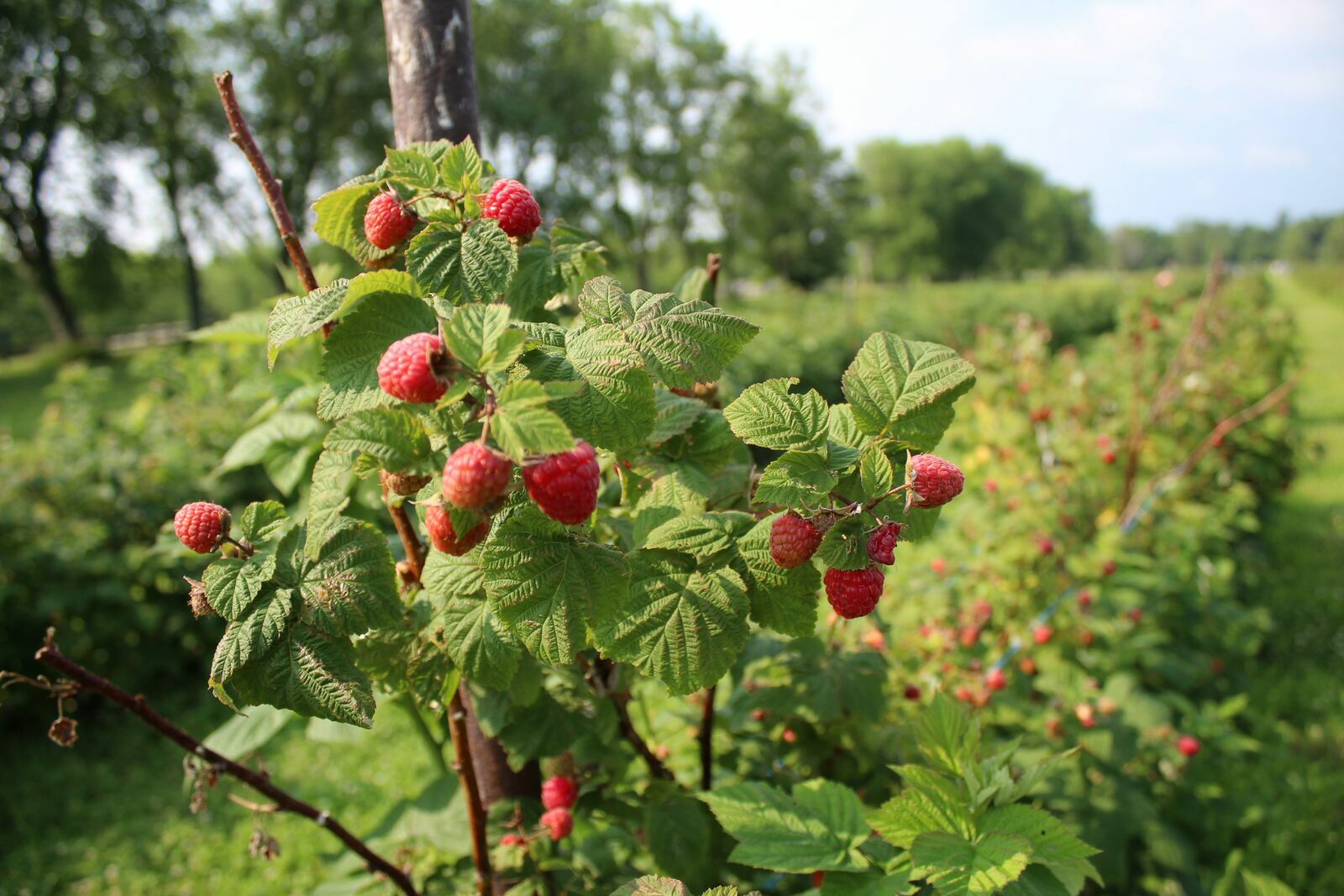
Pruning Raspberries: How to Do It
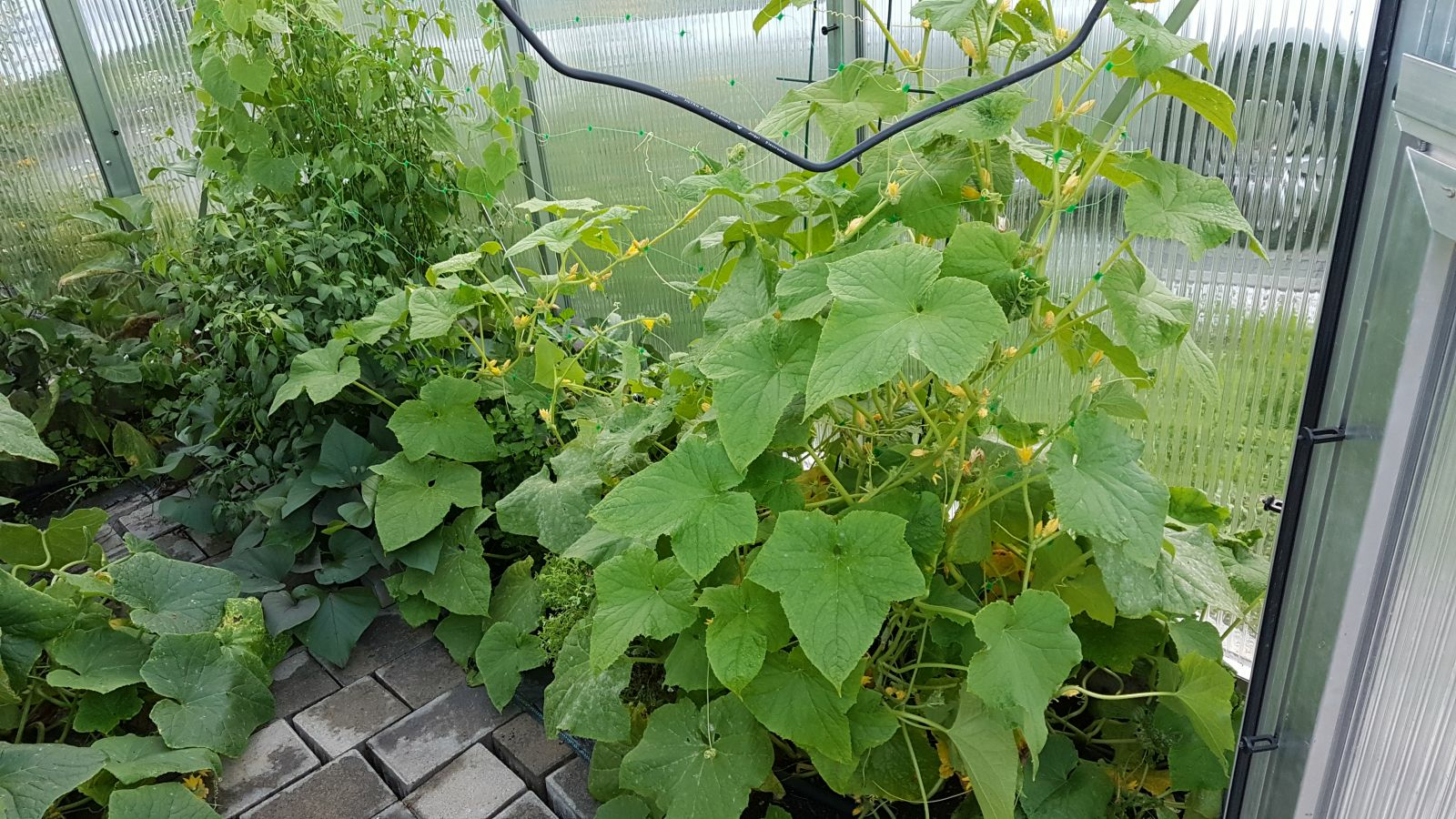
Vegetable Garden With Greenhouse: How to Use Greenhouse Effect
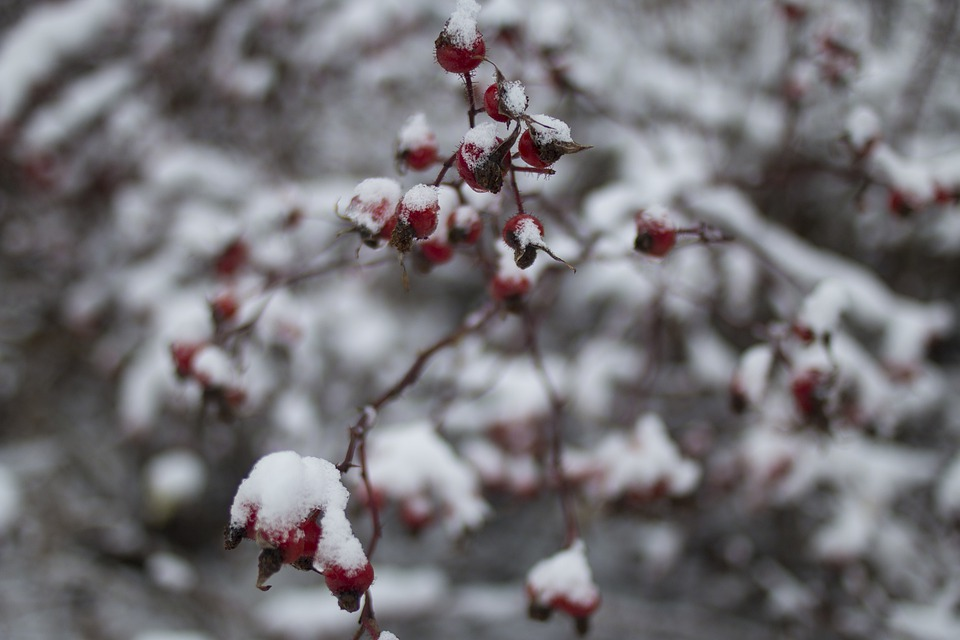
Winterizing Beds and the Garden: How to Do It
FAQ
Why pickle cucumbers in salt water overnight?
Pickling in salt water removes water from the cucumbers and strengthens their cell structure, making them crunchier and less likely to absorb liquid when pickled later.
How do home-pickled cucumbers stay crunchy?
To keep the cucumbers crunchy, first place them in salted water, add calcium-rich leaves (e.g. vine or cherry leaves) to the pickling process and quickly heat the pickling liquid to blanch the cucumbers briefly.
How can you preserve green cucumbers?
Green cucumbers can be preserved by soaking them in a vinegar-salt solution and then boiling them in sterilized jars. The high acidity of the solution and the airtight seal preserve them.
Yes, country cucumbers can also be pickled. They often have a firmer skin, which may need to be peeled, and a more intense flavor that lends itself well to spicy pickling solutions.